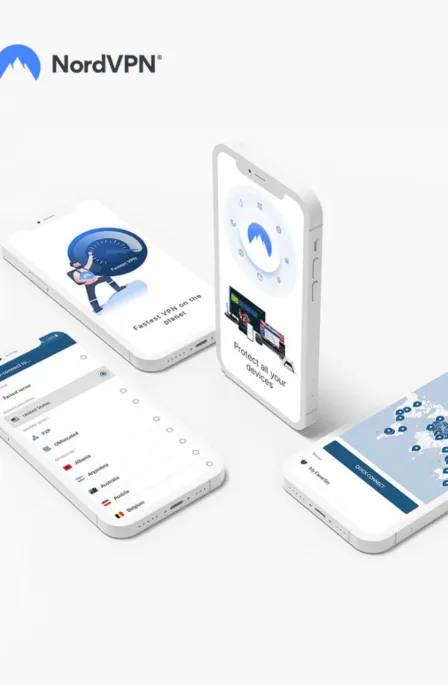It has been rightly said that ‘With fame comes great responsibility. Why do you think Macs have fewer breaching issues? The sole reason is that Macs are not as famous as Windows. The larger a platform is, the easiest a target it becomes. Facebook, like none other, is quite a famous social networking website where unconsciously users feed their personal information.
Facebook’s booming success can be attributed to its ability to please its users by connecting them worldwide and providing a single login that works across multiple sites.
Since it is a huge platform where people connect with their friends and family and share their private information of all sorts, it should be kept in mind that it is also full of danger. To minimize the risks of being banged with malware on Facebook, one should take some precautions, which have been enlisted below.
Avoid rogue Application
You can log in to multiple websites and applications using your Facebook credentials. This may seem quite comfortable, but as many apps are rogue, you should not put your faith in every app. This is because of Facebook’s widespread prevalence.
If any unknown application pops up and asks for your authorization, the simple task you can do is ignore it and prevent it from using your account. Another thing that you can do is search the app on Google and make sure if anyone has reported on it. Before authorizing any app, make sure to review the permissions that it asks for.
Click with caution
The most basic advice that needs to be acted upon when surfing the Internet is not to click on something you think is unsafe. It can be stuff like a message sent by a friend or a Facebook ad, but if it seems peculiar, you should rather ignore it. If you are not sure whether a shortened URL is safe or not, use a link unshortening service.
Not all bad links lead to Facebook malware, but they may direct you to some other virulent sites that, in the worst cases, may infect you with ransomware.
Pay no Heed to strange friend request
Friend requests coming from someone with at least three mutual friends might be considered safe, whereas requests from weird people must be ignored. Being a newbie in the social world, even you are bound to use your common sense and turn down all cold calls.
People with a fake profile photo, zero friends, and foreign country residence have no intention to make friends with you, but instead, they try to infiltrate your sensitive information. So to protect yourself from such shady people, you should limit yourself to the friend circle you are familiar with. Paying heed to such unsolicited requests may make you vulnerable to being hacked.
Stay in Reality
Facebook malware scams come along with messages that try to blackmail you by saying that someone took sneaky photos of you, cash or iPad giveaways, to attract you so that you may click on bad links that will direct you to malware. Similarly, the famous ‘Bill Gates Billion Dollar Giveaway’ is bogus and won’t win you any money.
Secure your Account
To save your friends from getting infected at the hands of an attacker, one must keep their account secure. If your account gets hacked, the attacker may ruin your reputation among your friends by sending unethical messages to your friends.
Review your settings on the Facebook security page:
- Login Alerts must be turned on that notify you when someone logs into your account from an unknown device.
- Use the Login Approvals setting to add two-factor authentication to your account. As a result, the security of your Facebook account will be doubled.
- Go through your Recognized Devices and Where You’re Logged in to make sure that you don’t find any out of place.
Scan your Authorized apps regularly
Make sure that you have faith in all the apps that are currently accessible to your Facebook account. Visit the Applications page to see your authorized apps.
To review any app’s current settings, click the pencil next to that app. This lets you check whether the app can post to the public, friends, or only you. This also allows you to check which permissions an app has; some apps need a set of permissions that can be disabled in other cases. To prevent an app’s complete access, click on the X icon next.
If you get Victimized
If you think you have been targeted by Facebook malware, even if you have removed the rogue apps by following the above steps, you should instantly change your password from the General tab of settings. Afterward, make sure that you run a security scan and ascertain that your web browser has not been hijacked.
Do post a status on your Facebook to let your friends know that your account faces some problems. Just like you are doing your level best to secure yourself and your friends from malicious minds, advise your friends to do the same and look out for signs of infection from your friends as well.
Conclusion
You will surely stay safe from prying eyes on Facebook by following the above steps. If you are a little bit sensible, you will avoid clicking haphazardly, avoid accepting random friend requests and empower apps you have strong faith in. Using these tips, you will be able to fend off malware on Facebook and browse Facebook peacefully.
Share this article
About the Author
Rutaba Rais is Editor at Be Encrypted with focus on Technology and Internet Security. Apart from her Healthcare background, she has interests in Lifestyle, Journalism, and expressing her opinion by her writing. You can follow her on Twitter.
More from Rutaba RaisRelated Posts

9 Top Instagram Scams and How to Stay Protected Against Them?
Online scams take place all over social media, and Instagram’s popularity also has made it an ...

Facebook Privacy Settings: You Shouldn’t Ignore
Facebook is one of the most popular social networking sites to which people share their details, suc...

4 WhatsApp Alternatives For Private Conversations In 2024
Whatsapp is one of the most popular instant messaging apps boasting more than two million users. The...
How Android Spy Apps are Stealing your Privacy?
Cell phones are our lifelines, aren’t they? But if I reveal to you what spy software can access your...

5 Ways to Protect Your Privacy on Social Media
Using social media comes at the cost of our privacy, and that is because of the companies behind the...

Android VS. iPhone iOS; Which is Secure To Use?
Android and iOS are not coming slowly in terms of popularity, and millions of sets are marketed ever...





